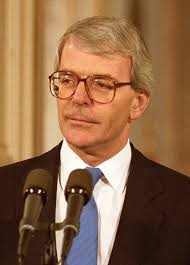John Major: An Insight into His Premiership

Introduction
John Major served as Prime Minister of the United Kingdom from 1990 to 1997, following the notable tenure of Margaret Thatcher. His time in office was marked by significant political changes, social reforms, and economic challenges, making his role a critical chapter in British history.
Early Life and Political Career
Major was born on March 29, 1943, in Carshalton, Surrey. He rose through the ranks of the Conservative Party and entered Parliament in 1979. His early positions included roles in the Treasury and as Minister of State for the Foreign and Commonwealth Office, where he gained crucial experience that would inform his future leadership.
Becoming Prime Minister
In November 1990, Major succeeded Thatcher after winning a leadership contest within the Conservative Party. His ascension to power came at a turbulent time, marked by divisions within the party and broader economic issues, including rising unemployment and inflation.
Major’s Policies and Achievements
During his premiership, Major aimed to unify the Conservative Party and embraced several key policies that reflected his centrist approach. He was known for his “back to basics” campaign, which emphasised traditional family values and governance integrity.
Major oversaw the signing of the Maastricht Treaty in 1992, deepening the UK’s integration with the European Union, which was a controversial decision that polarized opinion within his party. His administration also introduced significant social policies such as the National Lottery and improvements in health and education funding.
The economy under Major faced severe challenges, including the early 1990s recession. However, his government achieved recovery by the mid-1990s, leading to a period of economic growth.
Challenges Faced
Major’s tenure was not without difficulties. He grappled with ongoing divisions within the Conservative Party, particularly over European integration, leading to internal strife that hampered his effectiveness. The growing popularity of the Labour Party, under Tony Blair, also posed a significant electoral threat. In the 1997 general election, Major’s government was decisively defeated, resulting in his resignation as party leader.
Conclusion
John Major’s time as Prime Minister was marked by a mixture of achievements and challenges that shaped modern British politics. His commitment to a united party and his impact on social policy reflect his legacy, even as he left office amid political turmoil. Looking forward, understanding Major’s government remains vital for comprehending the shifts in UK political discourse, especially as the nation continues to navigate its position within Europe and the wider world.









